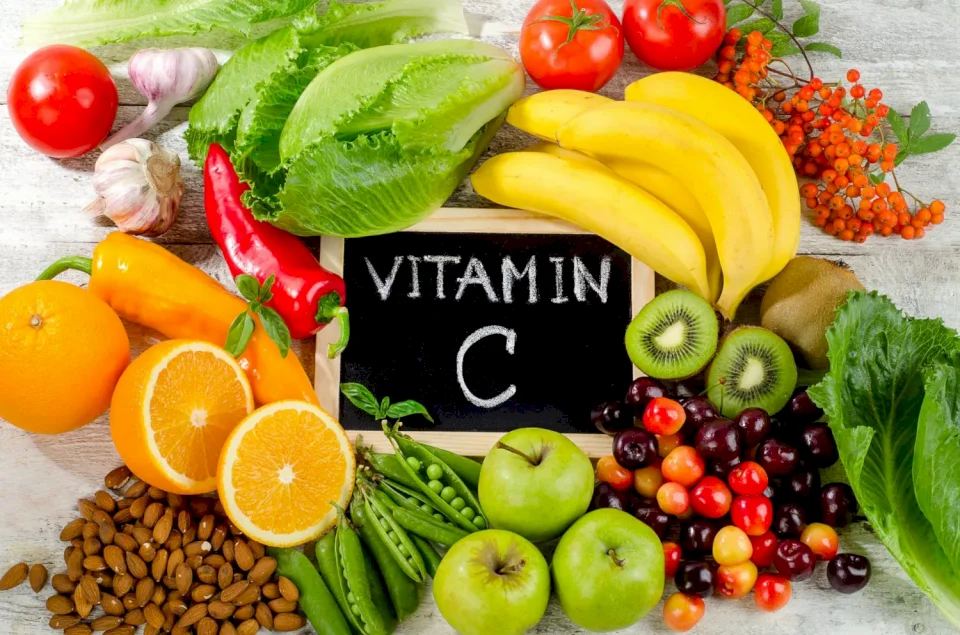
10 Symptoms That May Indicate You Are Suffering from Vitamin C Deficiency
SadaNews - Vitamin "C", which is water-soluble, is important for supporting immunity, heart health, iron absorption, and several body functions. A deficiency in Vitamin "C" can cause symptoms including fatigue, weakened immunity, skin problems, and in severe cases, scurvy. The "Verywell Health" website mentions common signs that indicate a Vitamin "C" deficiency, including:
Fatigue and Weakness
Common signs of vitamin deficiency include fatigue or weakness. Vitamin "C" plays a crucial role in energy production in the body's cells, and its deficiency can lead to weakness and muscle pain. One study showed an improvement in fatigue symptoms among office workers after receiving Vitamin "C" intravenously.
Easy Bruising and Slow Wound Healing
Vitamin "C" deficiency affects collagen production. Collagen (a protein that forms the connective tissues of skin, hair, nails, joints, and blood vessels) is essential for maintaining vascular health. Weak collagen production weakens blood vessels. These weak blood vessels can rupture, causing bleeding and easy bruising.
Weakened Immune System
Vitamin "C" is an essential nutrient for maintaining the health of the immune system, and low levels can increase the risk of infections, leading to a higher frequency of colds, flu, and other diseases.
Changes in Weight
Some research has indicated that low levels of Vitamin "C" are linked to an increase in body fat, but the relationship is not fully understood. However, Vitamin "C" deficiency may also lead to weight loss, particularly since loss of appetite is another symptom.
Vitamin "C" is an antioxidant, substances that help prevent or slow cell damage. As a result, Vitamin "C" may help regulate fat oxidation, the process by which the body burns fat for energy. As an antioxidant, Vitamin "C" can also help reduce stress and inflammation hormones.
Weak Bones
Bone weakness can be a symptom of Vitamin "C" deficiency. Ascorbic acid present in Vitamin "C" is an essential nutrient involved in collagen formation, contributing to the overall health and strength of bone tissue. Its deficiency is linked to abnormal bone growth and an increased risk of fractures and osteoporosis (a disease that causes weakened bones).
Joint Swelling and Pain
Joints are made up of connective tissues rich in collagen. Vitamin "C" plays an important role in collagen formation. Joint swelling and pain can be symptoms of Vitamin "C" deficiency due to reduced collagen production.
Problems with Gums and Teeth
Low levels of Vitamin "C" lead to weakened and inflamed gums, causing redness, swelling, and bleeding. In severe cases, this may lead to weakened dentin (the layer of tissue beneath the enamel of teeth), and ultimately, tooth loss. Vitamin "C" can have a positive impact on the prevention of dental issues.
Skin Problems
The skin is affected by low levels of Vitamin "C" due to its role in collagen production, a major component of skin tissue.
Vitamin "C" is also a powerful antioxidant for the skin. The outer layer of the skin contains a high amount of Vitamin "C", protecting it from harmful environments and ultraviolet (UV) rays. Its deficiency may lead to dryness and wrinkles.
Low Iron Levels
Low levels of Vitamin "C" can lead to iron deficiency by reducing iron absorption and metabolism in the body, and can also lead to anemia related to scurvy.
Depression
Vitamin "C" plays an important role in mental health. A deficiency in Vitamin "C" has been linked to depression, mood changes, and other neuropsychological symptoms.
People suffering from scurvy may experience depression and mood disorders.
How to Prevent or Treat Vitamin C Deficiency
To prevent Vitamin "C" deficiency, aim to get enough of it by following a diet rich in fruits and vegetables. Fruits rich in Vitamin "C" include: oranges, grapefruits, guavas, kiwis, papayas, lemons, strawberries, blueberries, raspberries, and melons.
Vegetables rich in Vitamin "C" include tomatoes, bell peppers (red and green), broccoli, spinach, kale, and potatoes.
If your diet is insufficient, or if you are at risk of diabetes, dietary supplements can help maintain healthy levels.

From Germany to Switzerland: Leaning Towers Challenge the Famous Leaning Tower of Pisa

New Crisis at Real Madrid Caused by "Marginalized" Player

Stunning Cosmic Display of a Dying Star.. Hubble Captures the Most Detailed Image of the '...

The Art That Defeated Geography: Venezuelan Artist Masters Turkish "Ebru" Thousands of Kil...

Head and Neck Cancer: When 'Hoarseness' or 'Difficulty Swallowing' Signals Danger

"Luna Ring".. A Solar Ring Around the Moon Promises a New Era of Energy for Earth

New Updates to Hypertension Treatment Protocol

